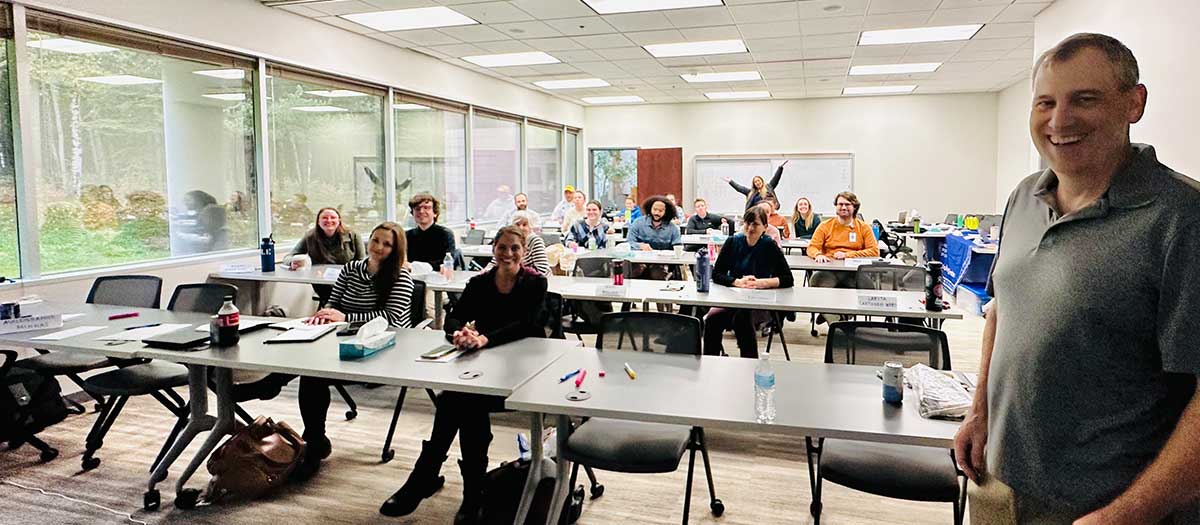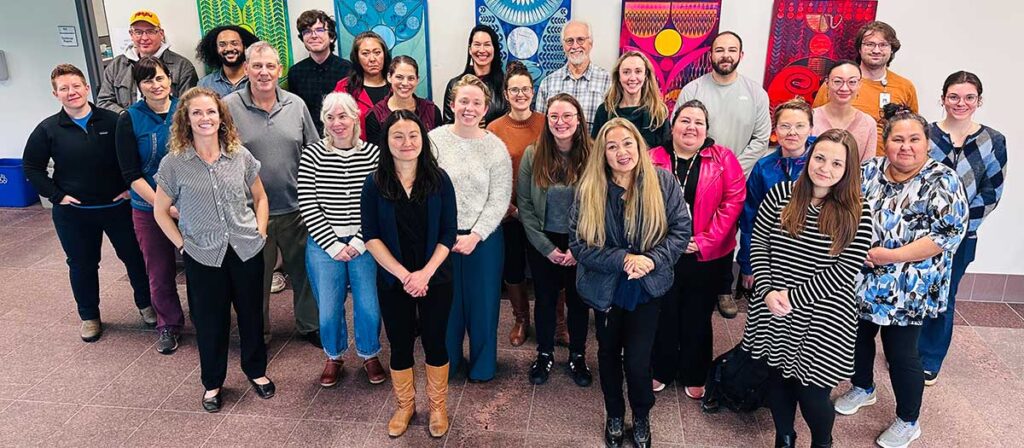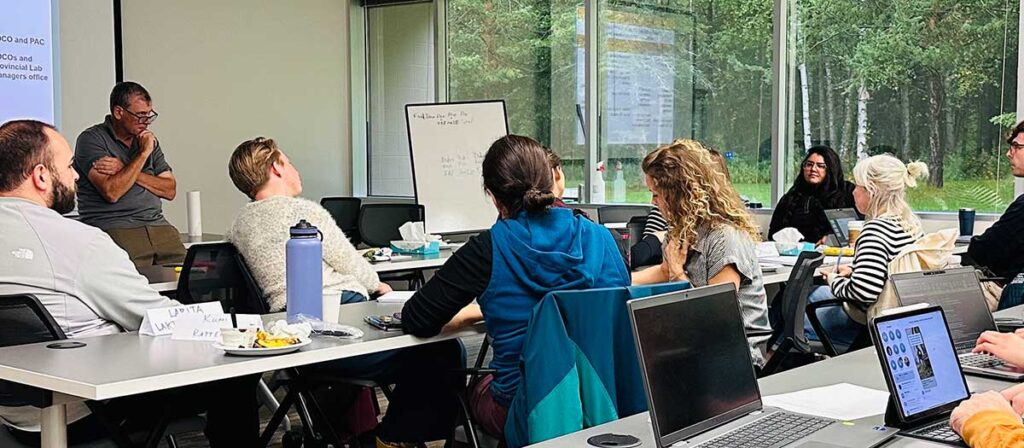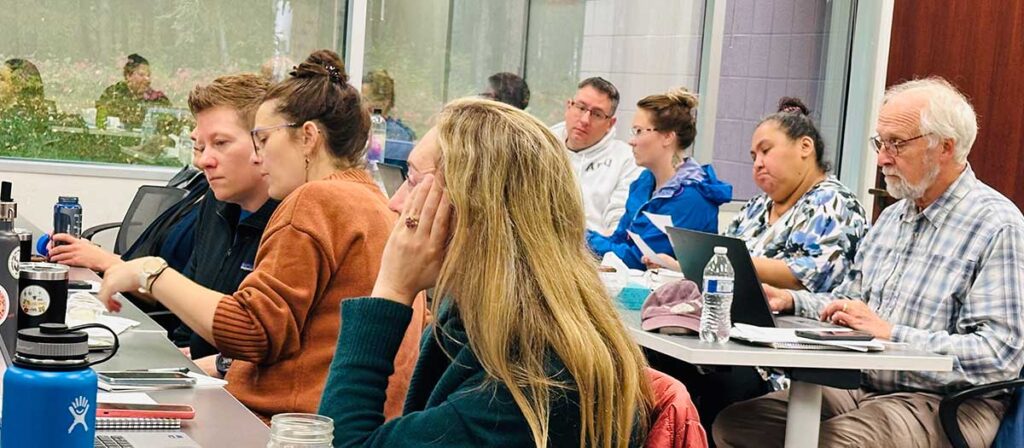
Training
The Alaska Native Epidemiology Center offers training workshops to build skills in core public health competencies within our Alaska Tribal Health System (ATHS).

Upcoming Trainings Sponsored by the ANTHC EpiCenter
State Unintentional Drug Overdose Reporting System (SUDORS) Webinar
January 29, 2026 • 10-11:30am
A webinar overview of the State Unintentional Drug Overdose Reporting System (SUDORS). SUDORS is a comprehensive database encompassing accidental and undetermined overdose death data (Webinar/Virtual).
Intermediate R
February 3, 2026 • 10am-12pm
R is a language and environment for statistical computing and graphics. R provides a wide variety of statistical (linear and nonlinear modelling, classical statistical tests, time-series analysis, classification, clustering) and graphical techniques, and is highly extensible. This 2-hour training will focus on data management and data visualization in R (Training Workshop/Virtual).
Overdose Detection Mapping Application Program (ODMAP) Webinar
February 17, 2026 • 10-11am
A webinar overview of the Overdose Detection Mapping Application Program which provides near real-time suspected overdose data across jurisdictions to support public safety and public health efforts to mobilize an immediate response to a sudden increase, or spike, in overdose events (Webinar/Virtual).
Flexdashboard in R
February 26, 2026 • 10am-12pm
A training workshop providing an overview and applications of Flexdashboard in R, which is used to publish groups of related data visualizations as a dashboard (Training Workshop/Virtual).
Intro to Data Management
In-Person Training
Let us come to you!
Alaska Native EpiCenter’s Data Management team members, Julie Morris and Megan Ackerman, will travel to your location to provide an Intro to Data Management workshop from 10 a.m. to noon (All times are AKDT). After a lunch break, they’ll offer a four-hour open office session in the afternoon for technical assistance and support with your spreadsheets.
Email your request for in-person training to anepicenter@anthc.org.
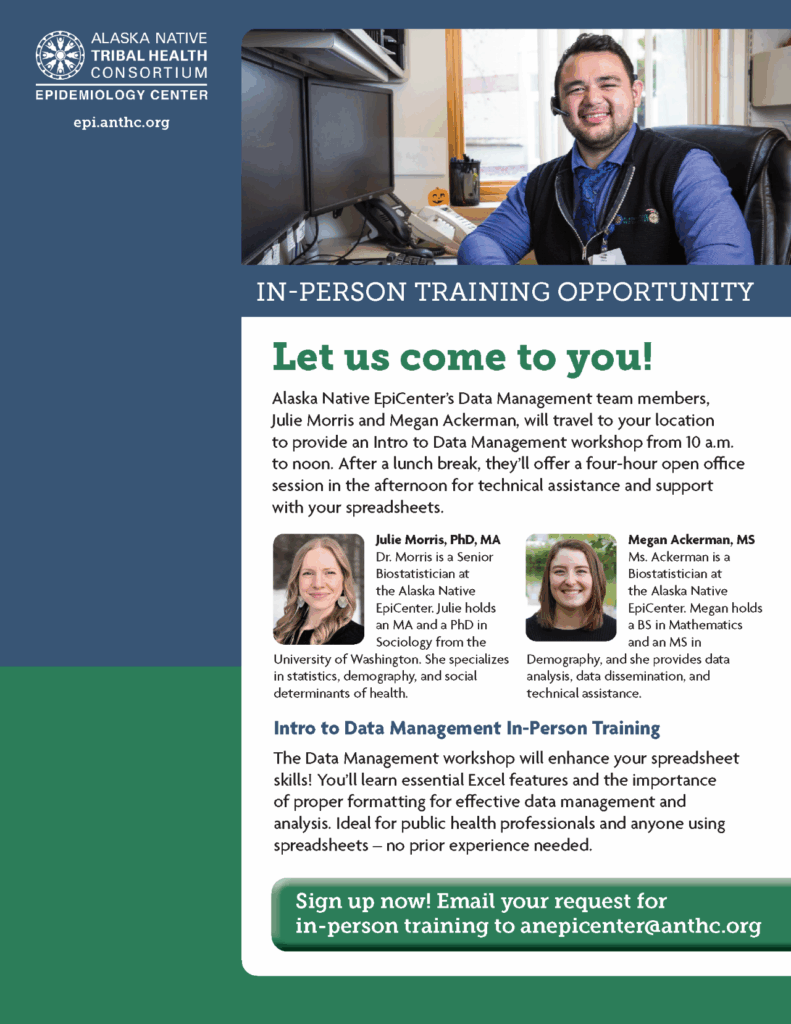
Using CDC WONDER to Track Substance Use Data in Alaska
This free training opportunity is sponsored and hosted by the ANTHC EpiCenter and presented by Tim Collins.
Join Senior Epidemiologist Tim Collins for a 2-hour CDC WONDER training, sponsored by the ANTHC EpiCenter, designed for Alaska Tribal health organization employees involved in substance use outreach, treatment, or analytics.
CDC WONDER (Wide-ranging ONline Data for Epidemiologic Research) is an easy-to-use, menu-driven system that has information resources available to public health professionals.
Participants will learn to create drug overdose-related queries in CDC WONDER, including number of deaths, crude mortality rate, and age-adjusted mortality rate. They will also learn to index results by various demographics and regions, and use built-in WONDER features to make charts, export, cite, and share their data.
This is a recurring event.
Past Trainings
The EpiCenter runs several training workshops each year. Past topics have included program evaluation, grants management, health literacy, and many more. We provide scholarships to Alaska Native professionals and students to help build capacity in the Alaska Tribal Health System. Below is a list recent trainings supported and/or conducted by the EpiCenter. If you are a THO employee and would like to see these trainings again, please Contact Us.
- Alaska Native Epi Data Sources and Methods
- Applied Demography
- Avian Influenza Preparedness for Alaska
- Basic Applied Epidemiology for Public Health Workers
- CDC Wonder
- Cost Principles for Federal Grants
- Creative Narrations in Anchorage
- Data Sovereignty
- Data Storytelling
- Demography 101
- Evaluation Planning
- From Default to Dazzling
- Indigenous Evaluation
- Introduction to Data Management
- Introduction to Public Health
- Managing Federal Grants
- Project Management Essentials for Non Project Managers
- Public Health and Risk Communication Strategies
- Qualitative Research Methods
- R for Beginners
- Intermediate R
- Subawarding for Passthrough Entities
- Survey Design
- TOP Facilitation Methods
- Using CDC WONDER CDC To Track Drug Overdoses in Alaska
- We Are Nations
TECPHI FY25 Success Story:
Basic Applied Epidemiology Training
In September, the Alaska Native Tribal Health Consortium’s (ANTHC) Alaska Native Epidemiology Center hosted a Basic Applied Epidemiology for Public Health Workers training to strengthen public health capacity and infrastructure. The goal of this training was to provide a practical, engaging, and applicable course focused for public health workers on key public health analysis and investigation methods, including but not limited to descriptive epidemiology, outbreak investigations, and quantitative methods.
The training brought together participants from ANTHC, Alaska Tribal Health Organizations, the State of Alaska Department of Public Health, and Anchorage Health Department to spend three days in person learning about applied epidemiological methods through a mix of lectures, group discussions, exercises, and case studies.
The agenda included a diverse array of topics, including sessions on:
- Rates, ratios, and proportions,
- Descriptive epidemiology,
- Analytic study design,
- Outbreak investigations,
- Questionnaire design,
- Sampling,
- Measures of association,
- Developing an analysis plan,
- Adverse childhood experiences, and
- Regression & modelling
Following the event, participants provided feedback about the value this training provided to them, including many positive reviews of the content. Participants shared that this was an “excellent training”, in particular the most useful parts being:
- “Real world examples tied into Alaska relevant scenarios;”
- “Getting practical experience with examples and guided exercises;”
- “Engagement and Alaska Native case studies;”
- “Case studies;” and
- “Networking with other people, learning more about ANTHC Epi, going through some exercises on outbreak investigation and study design;” among more.
The final event evaluation demonstrated that 100% of respondents found this training to be “good” or “excellent”, and many participants shared their gratitude for the time to connect with other public health workers.
